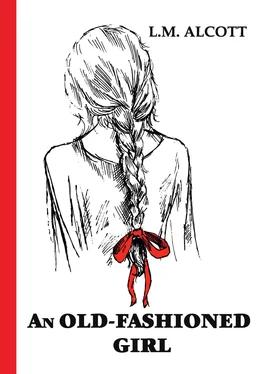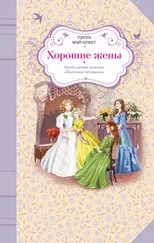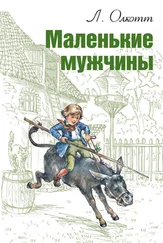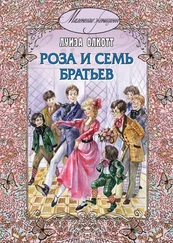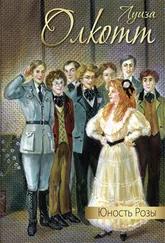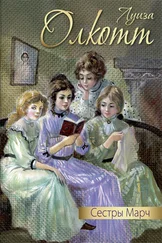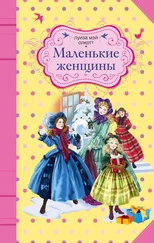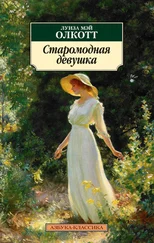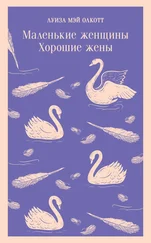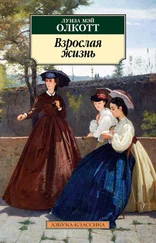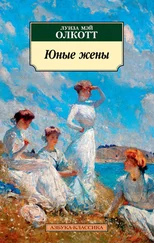1 ...7 8 9 11 12 13 ...18 Another thing that troubled Polly was her clothes, for, though no one said anything, she knew they were very plain; and now and then she wished that her blue and mouse colored merinos were rather more trimmed, her sashes had bigger bows, and her little ruffles more lace on them. She sighed for a locket, and, for the first time in her life, thought seriously of turning up her pretty curls and putting on a “wad.” She kept these discontents to herself, however, after she had written to ask her mother if she might have her best dress altered like Fanny’s, and received this reply:
“No, dear; the dress is proper and becoming as it is, and the old fashion of simplicity the best for all of us. I don’t want my Polly to be loved for her clothes, but for herself; so wear the plain frocks mother took such pleasure in making for you, and let the panniers go. The least of us have some influence in this big world; and perhaps my little girl can do some good by showing others that a contented heart and a happy face are better ornaments than any Paris can give her. You want a locket, deary; so I send one that my mother gave me years ago. You will find father’s face on one side, mine on the other; and when things trouble you, just look at your talisman, and I think the sunshine will come back again.”
Of course it did, for the best of all magic was shut up in the quaint little case that Polly wore inside her frock, and kissed so tenderly each night and morning. The thought that, insignificant as she was, she yet might do some good, made her very careful of her acts and words, and so anxious to keep heart contented and face happy, that she forgot her clothes, and made others do the same. She did not know it, but that good old fashion of simplicity made the plain gowns pretty, and the grace of unconsciousness beautified their little wearer with the charm that makes girlhood sweetest to those who truly love and reverence it. One temptation Polly had already yielded to before the letter came, and repented heartily of afterward.
“Polly, I wish you’d let me call you Marie,” said Fanny one day, as they were shopping together.
“You may call me Mary, if you like; but I won’t have any ie put on to my name. I’m Polly at home, and I’m fond of being called so; but Marie is Frenchified and silly.”
“I spell my own name with an ie, and so do all the girls.”
“And what a jumble of Netties, Nellies, Hatties, and Sallies there is. How ‘Pollie’ would look spelt so!”
“Well, never mind; that wasn’t what I began to say. There’s one thing you must have, and that is, bronze boots,” said Fan, impressively.
“Why must I, when I’ve got enough without?”
“Because it’s the fashion to have them, and you can’t be finished off properly without. I’m going to get a pair, and so must you.”
“Don’t they cost a great deal?”
“Eight or nine dollars, I believe. I have mine charged; but it don’t matter if you haven’t got the money. I can lend you some.”
“I’ve got ten dollars to do what I like with; but I meant to get some presents for the children.” And Polly took out her purse in an undecided way.
“You can make presents easy enough. Grandma knows all sorts of nice contrivances. They’ll do just as well; and then you can get your boots.”
“Well; I’ll look at them,” said Polly, following Fanny into the store, feeling rather rich and important to be shopping in this elegant manner.
“Aren’t they lovely? Your foot is perfectly divine in that boot, Polly. Get them for my party; you’ll dance like a fairy,” whispered Fan.
Polly surveyed the dainty, shining boot with the scalloped top, the jaunty heel, and the delicate toe, thought her foot did look very well in it, and after a little pause, said she would have them. It was all very delightful till she got home, and was alone; then, on looking into her purse, she saw one dollar and the list of things she meant to get for mother and the children. How mean the dollar looked all alone! And how long the list grew when there was nothing to buy the articles.
“I can’t make skates for Ned, nor a desk for Will; and those are what they have set their hearts upon. Father’s book and mother’s collar are impossible now; and I’m a selfish thing to go and spend all my money for myself. How could I do it?” And Polly eyed the new boots reproachfully, as they stood in the first position as if ready for the party. “They are lovely; but I don’t believe they will feel good, for I shall be thinking about my lost presents all the time,” sighed Polly, pushing the enticing boots out of sight. “I’ll go and ask grandma what I can do; for if I’ve got to make something for everyone, I must begin right away, or I shan’t get done;” and off she bustled, glad to forget her remorse in hard work.
Grandma proved equal to the emergency, and planned something for everyone, supplying materials, taste, and skill in the most delightful manner. Polly felt much comforted; but while she began to knit a pretty pair of white bed-socks, to be tied with rose-colored ribbons, for her mother, she thought some very sober thoughts upon the subject of temptation; and if anyone had asked her just then what made her sigh, as if something lay heavy on her conscience, she would have answered, “Bronze boots.”
“It’s so wainy, I can’t go out, and evwybody is so cwoss they won’t play with me,” said Maud, when Polly found her fretting on the stairs, and paused to ask the cause of her wails.
“I’ll play with you; only don’t scream and wake your mother. What shall we play?”
“I don’t know; I’m tired of evwything, ’cause my toys are all bwoken, and my dolls are all sick but Clawa,” moaned Maud, giving a jerk to the Paris doll which she held upside down by one leg in the most unmaternal manner.
“I’m going to dress a dolly for my little sister; wouldn’t you like to see me do it?” asked Polly, persuasively, hoping to beguile the cross child and finish her own work at the same time.
“No, I shouldn’t, ’cause she’ll look nicer than my Clawa. Her clothes won’t come off; and Tom spoilt ’em playing ball with her in the yard.”
“Wouldn’t you like to rip these clothes off, and have me show you how to make some new ones, so you can dress and undress Clara as much as you like?”
“Yes; I love to cut.” And Maud’s face brightened; for destructiveness is one of the earliest traits of childhood, and ripping was Maud’s delight.
Establishing themselves in the deserted dining room, the children fell to work; and when Fanny discovered them, Maud was laughing with all her heart at poor Clara, who, denuded of her finery, was cutting up all sorts of capers in the hands of her merry little mistress.
“I should think you’d be ashamed to play with dolls, Polly. I haven’t touched one this ever so long,” said Fanny, looking down with a superior air.
“I ain’t ashamed, for it keeps Maud happy, and will please my sister Kitty; and I think sewing is better than prinking or reading silly novels, so, now.” And Polly stitched away with a resolute air, for she and Fanny had had a little tiff, because Polly wouldn’t let her friend do up her hair “like other folks,” and bore her ears.
“Don’t be cross, dear, but come and do something nice, it’s so dull today,” said Fanny, anxious to be friends again, for it was doubly dull without Polly.
“Can’t; I’m busy.”
“You always are busy. I never saw such a girl. What in the world do you find to do all the time?” asked Fanny, watching with interest the set of the little red merino frock Polly was putting on to her doll.
Читать дальше
